Question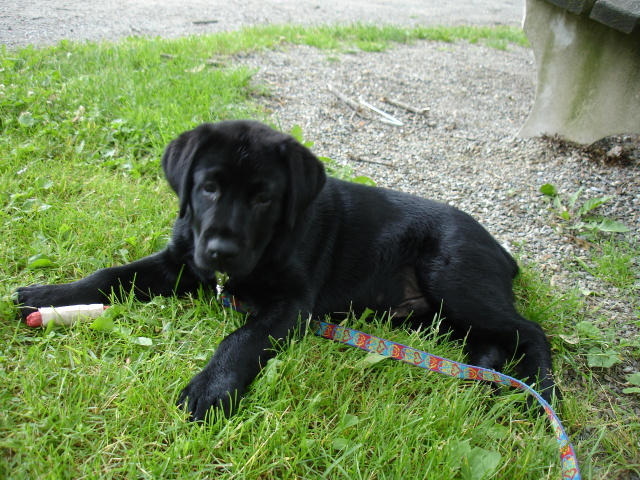 just hanging out!
just hanging out!
QUESTION: I recently took my black lab Sawyer to the vet for a check-up, shots and vaccinations. His weight was 37.6 lbs at 14 weeks. He is not over weight according to the vet as he has a nice waist and his rib cage can be easily felt in the lower part of his rib cage. I have used a few different calculations to estimate his size as an adult and I'm coming up with 140lbs give or take. Sawyer exercises (fetch and just running back and forth because he can) daily up to a minimum of 45 mins or longer. He is tall with a broad stature and his skin is like that of a sharpei, tons of skin that's yet to be grown into. Sawyer receives 2 cups of Iams large breed puppy food in the am and pm. If the food is not gone within 15 minutes it is picked up. I lost a lab of 13 years to degenerative bone issues and I am deathly afraid that I may be allowing him to grow to quickly which I understand does not allow the bone structure to keep pace therefore he may experience joint issues that may have been avoided early on. Sawyer's dad was 135 lbs and his mother was 85lbs. So are we looking at a genetic predisposition to be an extremely large lab or is he eating too much which is causing him to grow to fast? I swear that he gains wt. overnight! I have had labs all my life and have never had a puppy that grew with this vilosety! Am I doing something wrong?
ANSWER: For now, I would say no. It sounds like you are keeping him lean. Feed what that takes and let his size and weight fall wherever it does. You should be feeding a puppy chow now. Switching to an adult chow for the larger breeds at 4 months, slows growth and helps develop sturdier joints. The large breed puppy chows are not as bad as regular ones, but are still formulated for faster growth than is best for their joints. He does sound like he is going to be a big boy. His growth may level off in a few months and require a little less food.
Your dog definitely should be narrower at the waist than the hips and chest. You should be able to easily feel the ribs, but not see them. Each dog is different. Standard recommendations are a good place to start, but each dog must have its food and exercise adjusted to its individual needs. Here is a link to a good illustrated guide, http://www.longliveyourdog.com/twoplus/RateYourDog.aspx
---------- FOLLOW-UP ----------
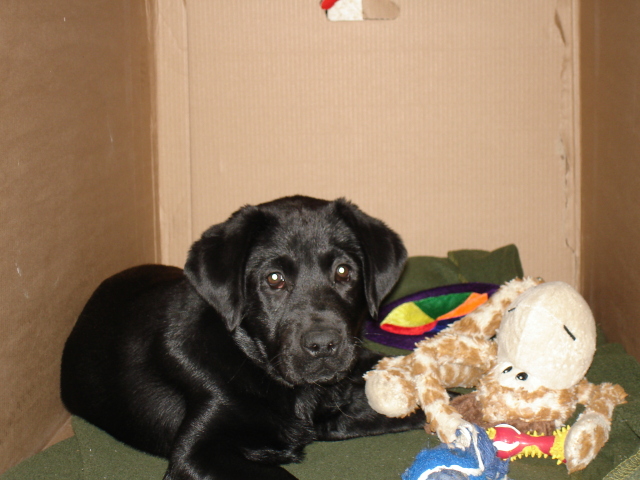 10 weeks and growing!
10 weeks and growing!
QUESTION: Thank-you for your timely response! I would like to put Sawyer on an adult chow at 4 months for the purposes of slowing his growth. The desired goal would be a sturdier bone structure decreasing the possibility of joint issues in the future. My questions are as follows- Will Sawyer continue to receive the nutrients that are important during his formative months? Is an adult chow more difficult for a puppy to digest than a chow formulated especially for a young digestive system. Lastly...can you make a recommendation for a particular brand that you have found to be a good choice? He is eating IAMs brand at this time (large breed puppy chow). Sawyer will definitely be neutered between 6-8 months unless there is research out there that suggests that this interferes with the overall growth process. Thank-you for giving me some piece of mind regarding his wt. I will continue to make sure that he is active and he continues to grow larger and not rounder! Thanks again!
AnswerAn early switch to adult Iams is well proven in many service dog programs. Nobody knows more about or has more incentive to produce sturdy dogs with a long active life. Each school does things slightly differently. Some feed other common brands. If your dog is doing well on Iams puppy chow, there is no logical reason to change to anything but the Iams adult, actually all life stages. Facts and logic lose out to emotion, hype, and junk science in many discussions of dog nutrition.
There are some statistical studies suggesting it is better to wait to neuter, but no real conclusive evidence that it makes much difference. There may or may not be some minor differences. Again, some of the service dog schools neuter then or earlier with good results. The earlier you neuter, the less likely some behavior problems. If your vet suggests 6-8 months, I would go with it. The AVMA strongly supports spay/neuter, but wants to leave the decision of when to individual vets.
As for rounder, even dogs kept lean change their body shope in their second year, becoming rounder. At 2 years old, a dog should still weigh about what it did at a year except for the largest ones that have more growth in their second year.



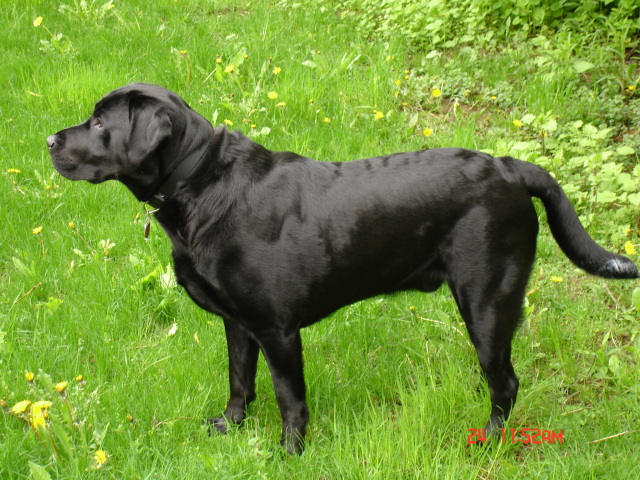 shedding, size, uncontrolled around other dogs
Question
Sawyer
My 13 month old black lab is shedding u
shedding, size, uncontrolled around other dogs
Question
Sawyer
My 13 month old black lab is shedding u
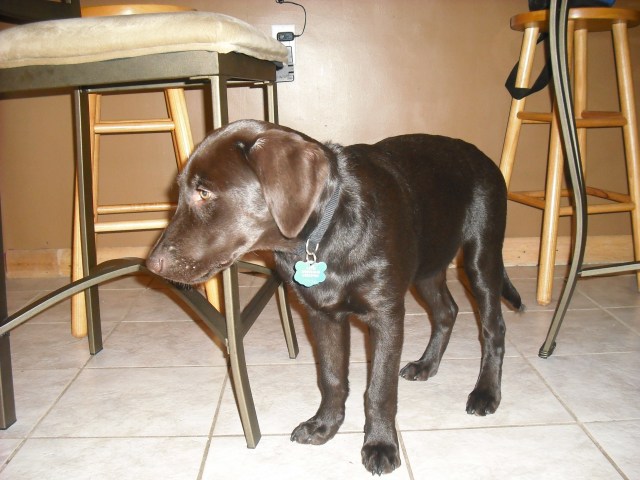 is my lab too small
Question
Reese
I have a 19 week old Male chocolate lab.
is my lab too small
Question
Reese
I have a 19 week old Male chocolate lab.
 Need opinion about my Labrador Retriever
QuestionCoco (Labrador Retriev
QUESTION: I have
Need opinion about my Labrador Retriever
QuestionCoco (Labrador Retriev
QUESTION: I have
 11 week old chocolate lab
Question
11 week old lab
We recently got a chocolate la
11 week old chocolate lab
Question
11 week old lab
We recently got a chocolate la
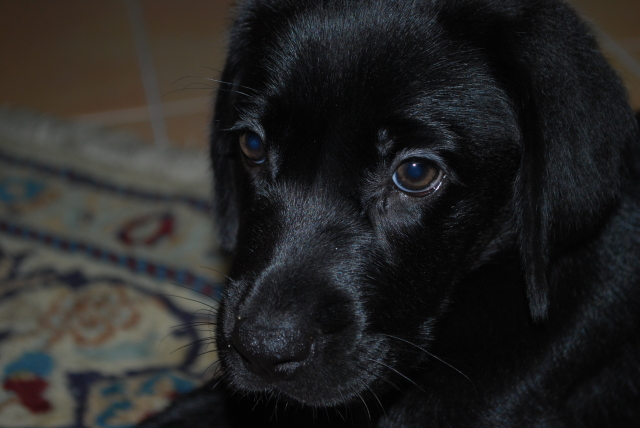 Labrador behaviour
Question
Gordie
Name: Gordie
Age: 4 months
Sex: Male
N
Labrador behaviour
Question
Gordie
Name: Gordie
Age: 4 months
Sex: Male
N